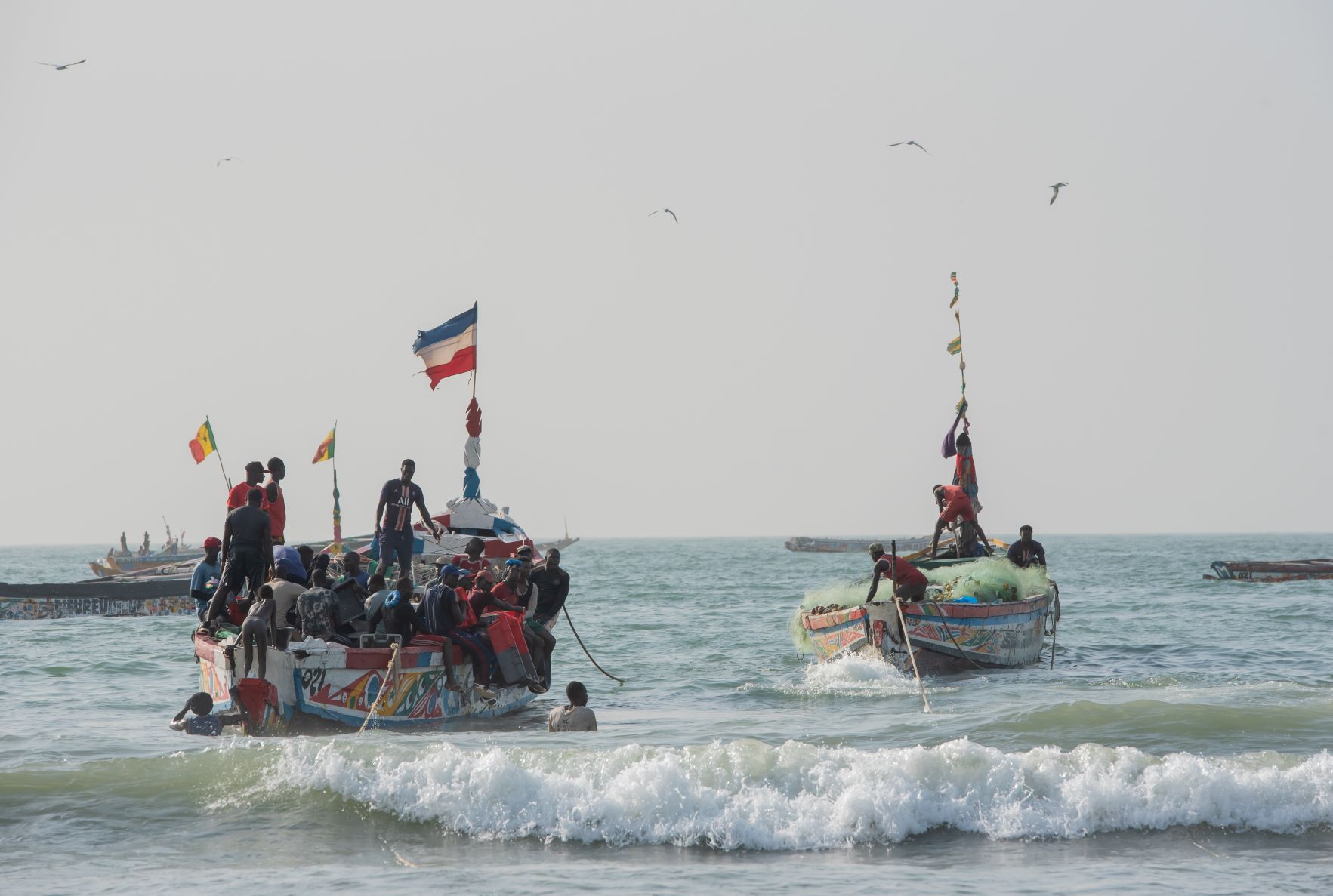Small-scale fisheries in Africa play an important role in the economy and food and nutrition security. It provides an essential source of protein for local populations and represents a means of livelihood for many coastal communities. In Africa, small-scale fisheries employ more than 10 million people and provide about 90% of the fish for local consumption. It also contributes to the export of seafood products, thus generating income for African countries. Also, small-scale fisheries can be a source of cultural pride for coastal communities and contribute to the preservation of cultural diversity.
Challenges that African small-scale fishers face on a daily basis
African small-scale fishers face many challenges on a daily basis. They face overfishing practices, which deplete fish stocks and make fishing less profitable. This can be due to excessive competition between fishermen, illegal fishing, etc.
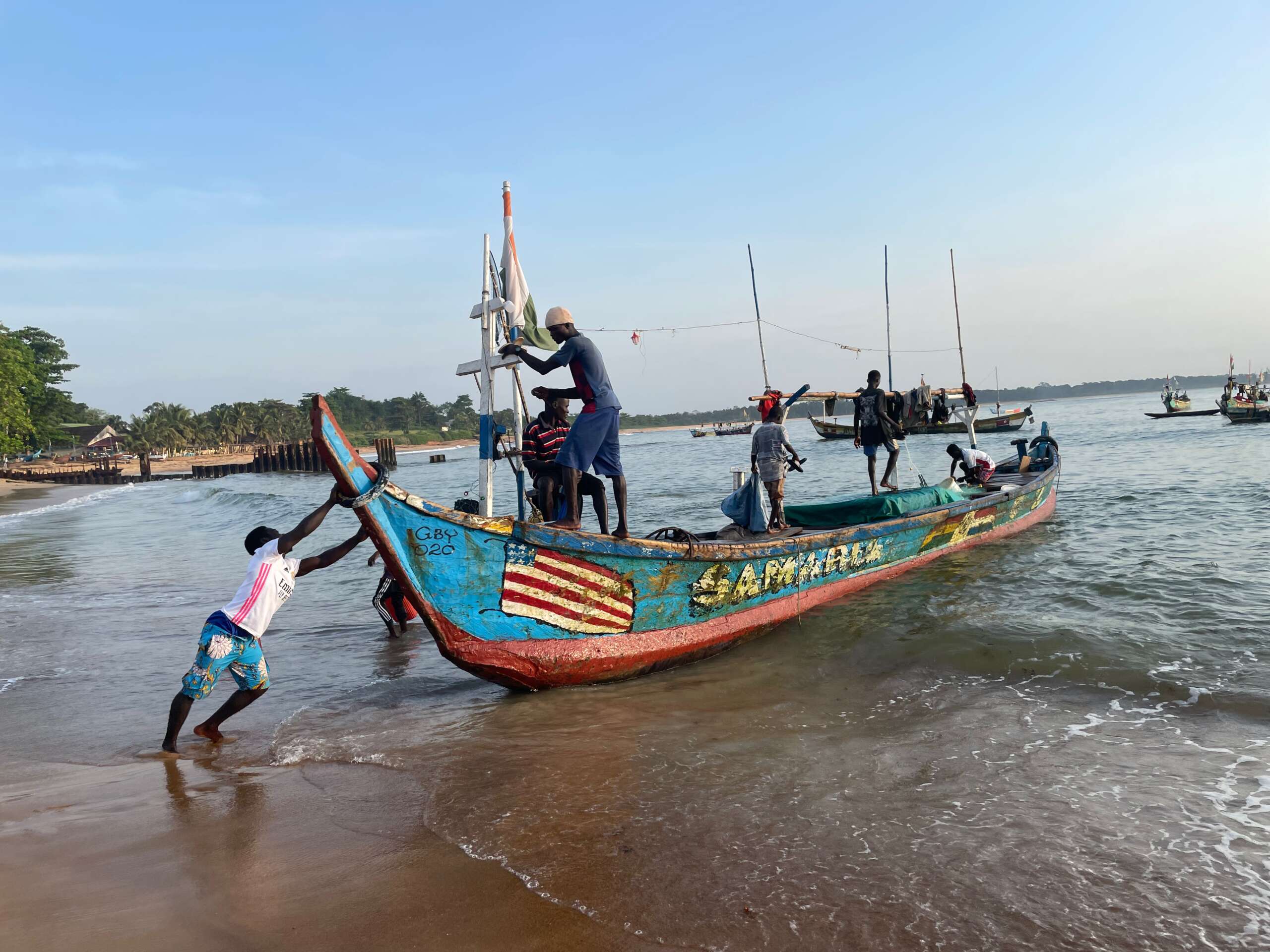
African small-scale fishers often find it difficult to sell their products at competitive prices on local and international markets due to a lack of adequate infrastructure for storage, processing and marketing of products.
Their biggest pain?
It is difficult to determine the greatest pain of African small-scale fishers as this may vary according to individual contexts and situations. However, some of the most common pains for these fishers are poverty and financial insecurity, difficult and dangerous working conditions, difficult access to fishing resources, marine pollution, climate change, conflicts over access to the resource and unfair competition with industrial fisheries. These pains have a negative impact on their physical and mental well-being, their food security and their overall quality of life.
Their fears?
Some common fears for these fishermen might include fear of not being able to feed their families due to declining fish stocks, fear of weather conditions at sea, fear of accidents and injuries at sea, fear of conflict with industry, and fear of not being able to pass on their skills to the next generation due to pressure on marine resources and the lack of interest of young people in small-scale fishing profession.
What about needs and expectations?
The needs and expectations of African small-scale fishers may vary according to their individual context, but some of the most common needs and expectations for these fishers are
Access to fisheries resources: Small-scale fishers need fair access to fisheries resources in order to keep on their fishing activity.
Infrastructure and equipment: Small-scale fishers need appropriate infrastructure and equipment to preserve process and market their products.
Training and technical support: Small-scale fishers need training and technical support to improve their fishing techniques and marine resource management.
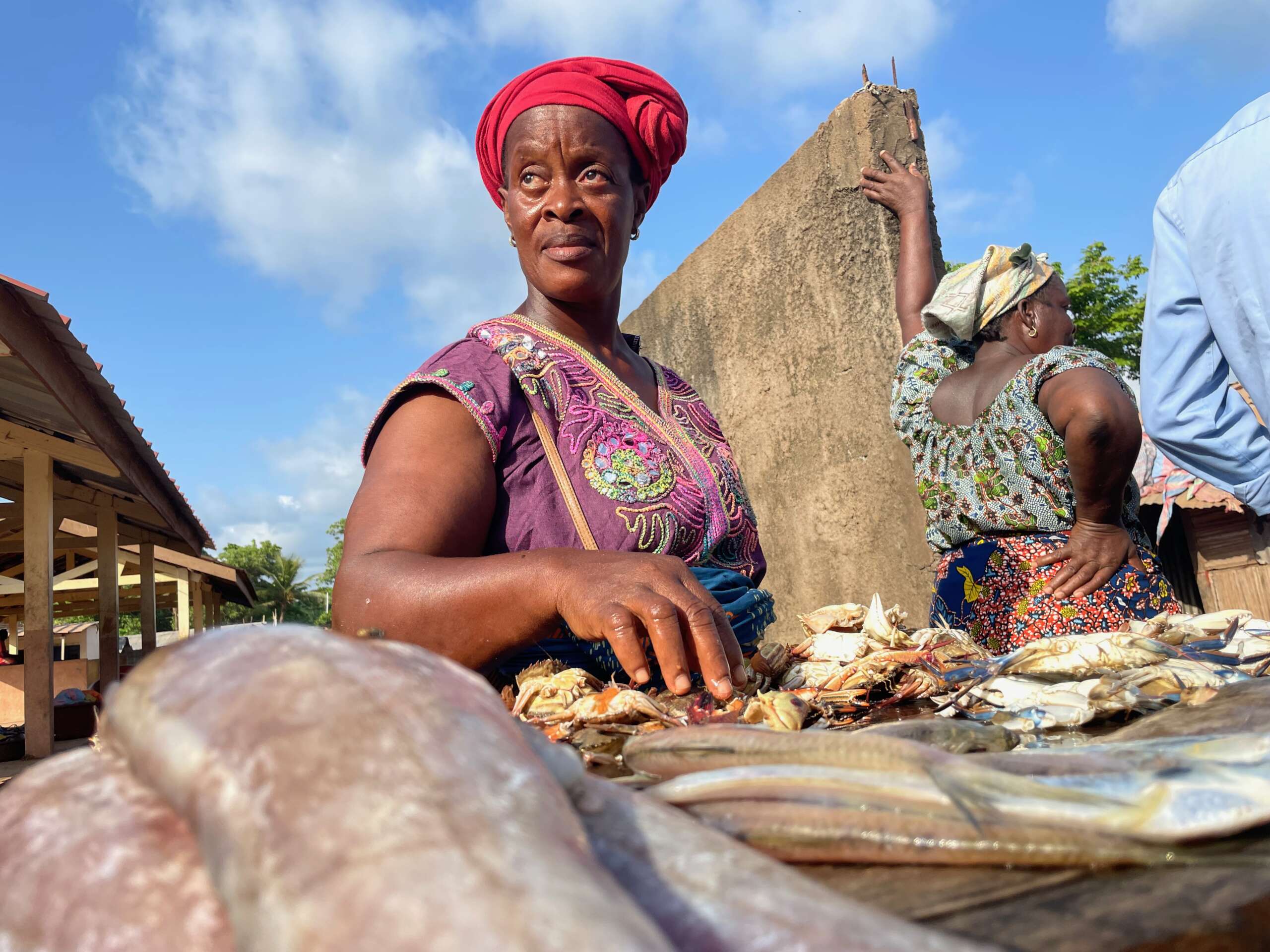
Protection of fishers’ rights: Small-scale fishers need recognition and protection of their rights as traditional communities and guarantees of their participation in the management of marine resources.
Access to fair markets: Small-scale fishers need fair access to local and international markets to be able to sell their products at fair and sustainable prices.
Support to cope with the impacts of climate change: Small-scale fishers need support to cope with the impacts of climate change, such as sea level rise, storms and droughts, which have a negative impact on fishing resources and the living conditions of fishing communities.
What do they really want?
The aspirations of African small-scale fishers may vary according to their individual context and personal aspirations, but in general they aspire to be able to practice their trade in a sustainable manner, to improve their living standard and that of their families, to have access to modern and adapted infrastructure and equipment, They want training and technical support to improve their fishing and marine resource management techniques, equitable access to fisheries resources, recognition and respect as traditional communities, and participation in decision-making on marine resource management issues. They also aspire to be protected from illegal fishing practices, etc.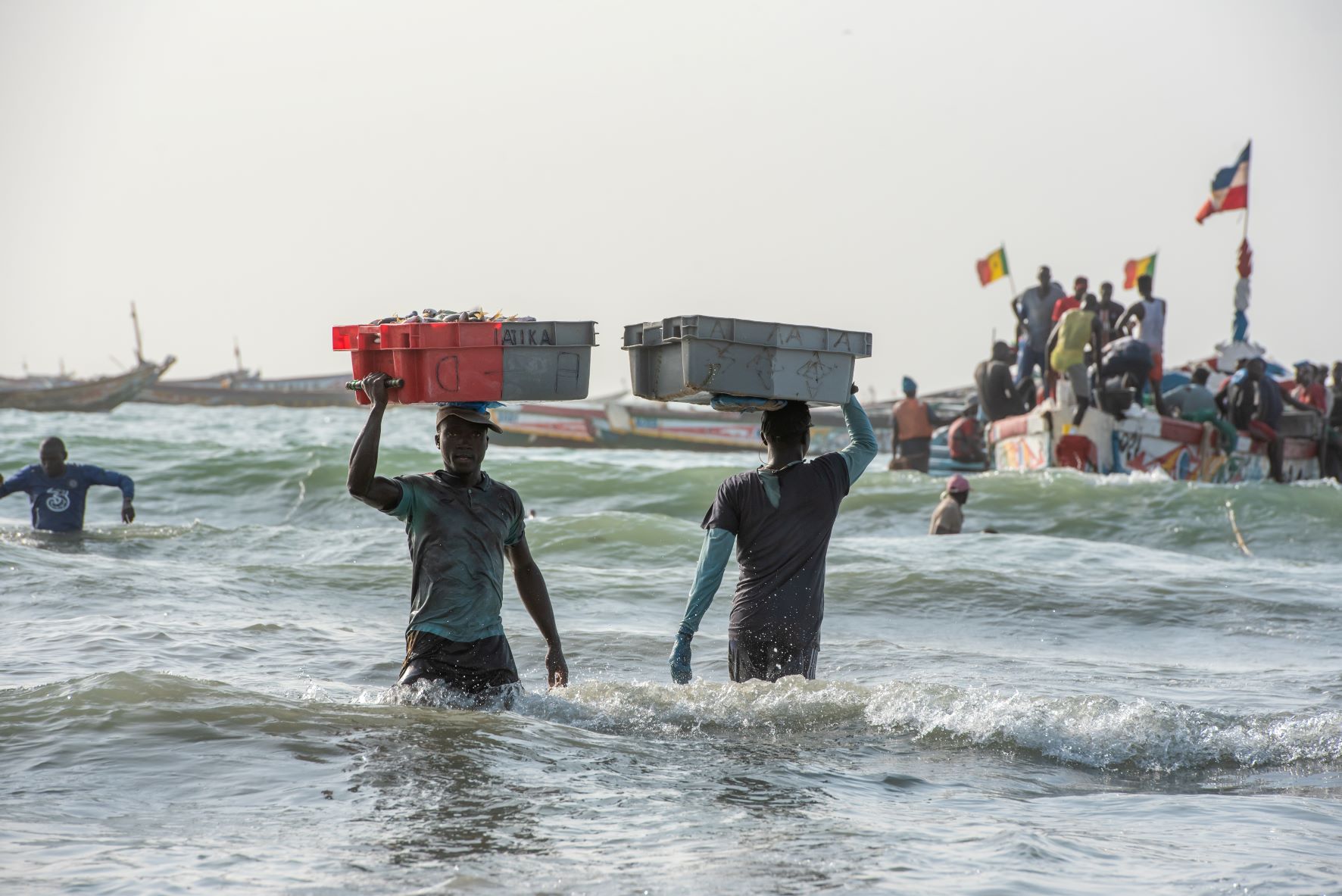
CAOPA’s actions to help improve the working conditions of actors
CAOPA (African Confederation of Professional Organizations of Artisanal Fisheries) is a continental organization of maritime and inland small-scale fisheries that aims to improve the sustainable management of fisheries resources in Africa and to strengthen the contribution of small-scale fisheries to the continent’s economy. To this end, CAOPA carries out several actions, including
Development of National Plans of Action for the implementation of the Voluntary Guidelines for Sustainable Small-scale Fisheries: CAOPA works with governments and fisheries stakeholders to develop fisheries management and action plans that promote sustainable fishing practices and the preservation of marine ecosystems.
Capacity building: CAOPA provides training and technical support to small-scale fishermen to improve their fishing techniques, enable them to adopt sustainable fishing practices and help them better manage marine resources.
Promotion of fishers’ rights: CAOPA promotes the recognition and protection of the rights of artisanal fishers as traditional communities and their participation in decision-making on issues related to marine resource management.
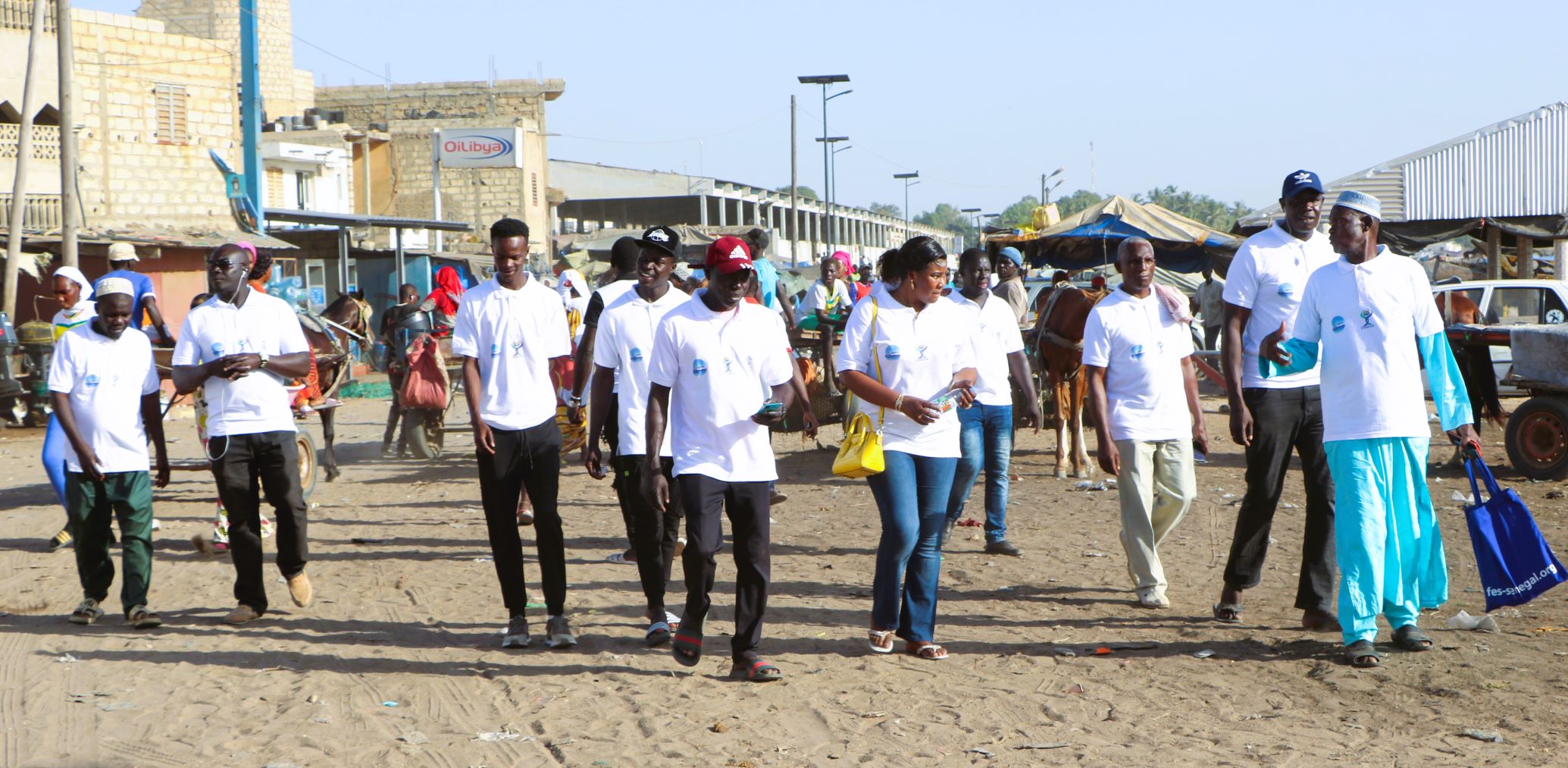
Fair market access: CAOPA works with governments, partners and fisheries stakeholders to promote fair access to local and international markets for fisheries products.
Raising awareness of small-scale fisheries issues: CAOPA carries out awareness-raising activities among coastal communities and the general public to promote the importance of artisanal fisheries, its issues, opportunities and challenges, through the Call to Action.
Thus, these CAOPA actions contribute to improving the working conditions and livelihoods of small-scale fisheries actors in Africa, while strengthening the contribution of small-scale fisheries to the economy and the sustainable management of fisheries resources.
Mamadou Aliou DIALLO


